Shellac Solvent: Grain Alcohol vs. Denatured Alcohol
Bob Miller explains why you should head to the local liquor store before applying your next shellac finish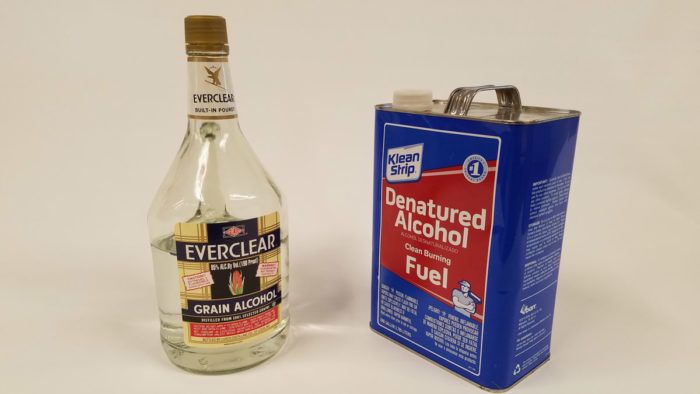
Shellac is a wonderful finish with a fantastic range of applications and possibilities. It can range from an easy utility finish all the way up to the finest of fine polished finishes. Here is a way to make your shellac finishes better and easier to use. This gets a little scientific, but stick with me, it’s worth it in the end.
It is very important to think about the solvent used to dissolve the shellac. Most people simply use commercially available “denatured” alcohol. Denatured alcohol is a general alcohol-based solvent used for a variety of applications across many industries. Mixed with shellac, it will produce a serviceable finish. However, it has some problems when it comes to shellac.
The first is that there is no industry regulation regarding what precisely constitutes denatured alcohol. This means that some brands are cut with water to increase their volume, often by as much as 20%.
The second is that there is no way of knowing what kind of alcohol was used to produce the product. Some brands contain methanol, a cheaper, more volatile and dangerous form of industrial alcohol that can be used to bulk up the volume of solvent. This inconsistency makes it difficult to predict the behavior of the shellac both as it dissolves and as it dries as a finish.
Quite apart from the mysterious composition of commercially available denatured alcohol, there is another major concern. To prevent people from recreationally drinking this industrial solvent, denatured alcohol contains substances such as denatonium, benzene, and pyridine. These compounds are called denaturants, hence the term “denatured” alcohol. These additives are meant solely to help prevent people from drinking industrial alcohol by giving it a bad taste and a powerful smell. They do nothing for your shellac! In fact quite the opposite, as these additives interfere with the dissolution process and remain in your finish after the alcohols have evaporated out. This can lead to difficulties in drying, polishing, and applying a fine shellac finish, as well as interfering with the clearness of the final finish.
Can the Can(ned) Shellac
Creative director Mike Pekovich demonstrates
how easy it is to make a batch of shellac from flakes.
In short, denatured alcohol is an unpredictable, dangerous, unhealthy, poor-quality solvent for shellac that will make your finish harder to use as well as shorten your life. Don’t worry, though; I have a solution.
Prior to Prohibition here in the United States, woodworkers would have simply mixed their shellac with a high proof, grain-derived alcohol that contained a minimum of water. It was only after Prohibition that all of these denaturants were added to make industrial alcohol undrinkable.
So if you’re looking for a pure, consistent supply of high-strength alcohol that doesn’t contain this spectrum of chemicals., think about the bottom shelf at your local liquor store. Everclear and Diesel are two brands of nearly pure alcohol that contain less than 5% water. They are commercially available in most states and are the perfect solvent for shellac, with no denaturant and a minimum of water.
Once you switch to pure alcohol for your shellac you will wonder how you ever got along with denatured alcohol. Pure grain alcohol will dissolve your shellac more smoothly and will build your finish more quickly. So take a trip to your local liquor store and pick up some solvent, give it a try with shellac, and see what you think when you’ve used a traditional solvent for your traditional shellac finish.
-Bob Miller is a custom furniture maker and woodworker based in the Charlestown neighborhood of Boston. In addition to his own line of work, Bob manages The Charlestown Furniture Makers, which is an 18-tenant co-op, solar-powered woodshop located in the Sullivan square area of Charlestown.
Bob also teaches for the continuing education department of The North Bennet Street School, primarily teaching Bowl Turning and The Fundamentals of Fine Woodworking.
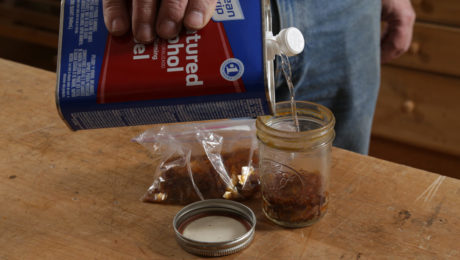 |
|
 |
|
 |
Fine Woodworking Recommended Products
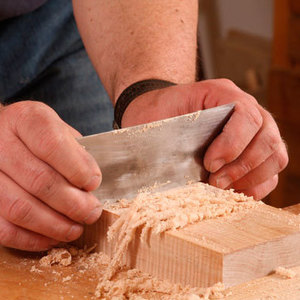
Bahco 6-Inch Card Scraper
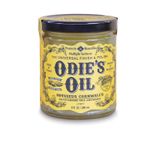
Odie's Oil
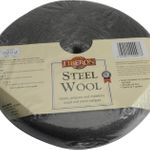










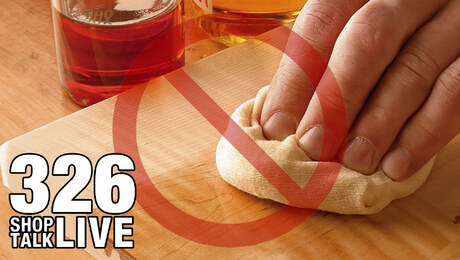









Comments
In Ontario, the distribution and sale of drinkable spirits is controlled by the LCBO, Liquor Control Board of Ontario. Your local LCBO store will not have grain alcohol, (ethanol). (You can buy only what the LCBO deigns you can. To keep you safe, of course.) Even denatured ethyl alcohol is rarely if ever found at hardware stores. The only alternative is euphemistically labeled, "methyl hydrate". Methanol, sports fans. Toxic, and too volatile, it evaporates too fast, but it does (sorta) work. So, in the name of taxation, and protecting drunks from themselves, woodworkers are left using methanol. Isn't that special?
One can obtain 200 proof ethanol on Amazon for about $40US/gallon,
including shipping. The precise composition of the denaturant can also usually be found on the web.
Much cheaper than at a liquor store. Moreover, in California one cannot
buy the 190 proof Everclear.
Log in or create an account to post a comment.
Sign up Log in